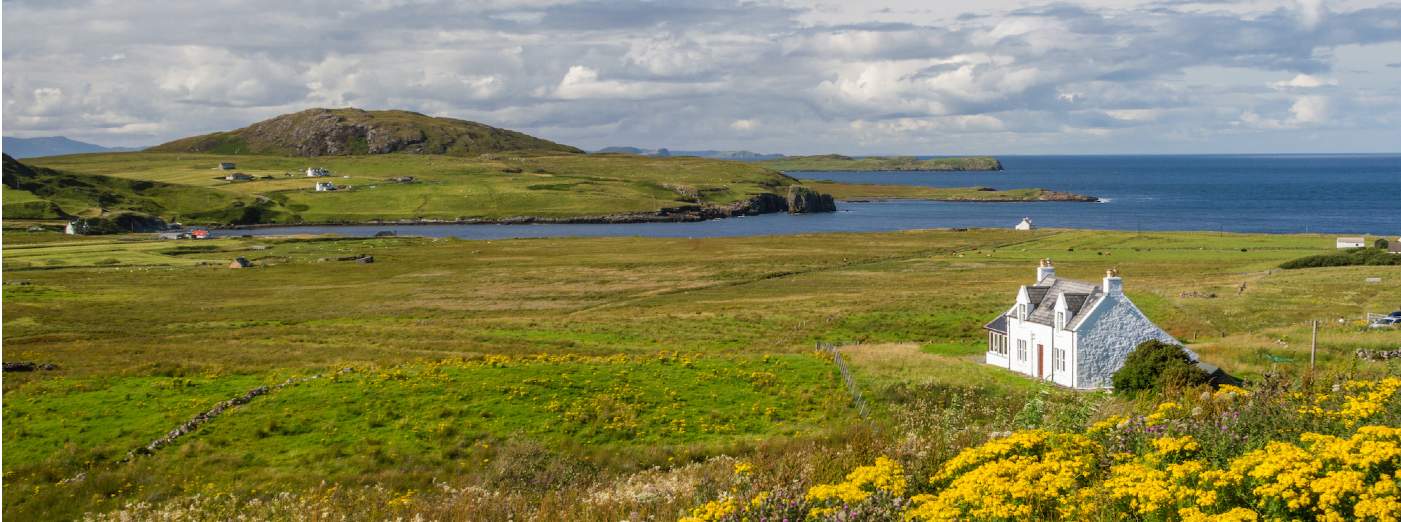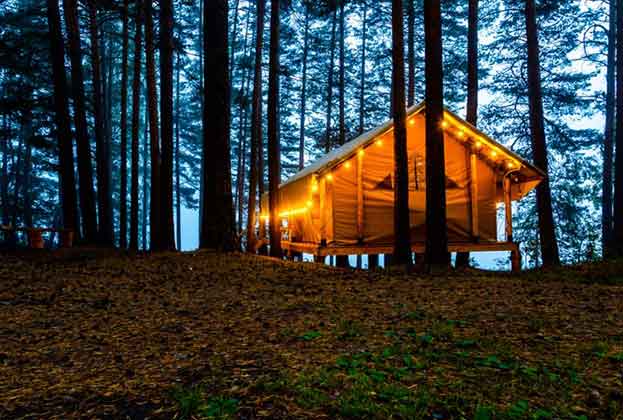The pandemic triggered a surge in buyers looking to move to the country this summer, many harbouring intentions of quitting city jobs to run their own tourism businesses. As a leisure and tourism specialist in Scotland, I am increasingly asked to visit properties with my agency colleagues to assess their potential to generate income – clients have included those hoping to establish a few glamping pods to others with ambitions of converting dilapidated country houses into boutique venues.
Despite our nation’s questionable weather, the tourists keep coming. Indeed according to consumer research from VisitScotland, having ‘four seasons in one day’ adds to Scotland’s personality and its landscape outshines all expectations, offering both ‘awe’ and ‘variety’ in abundance.
In 2019, 15.5 million people visited Scotland, with 12 million coming from the UK. In the same year there were 65.4 million nights spent in Scotland, an increase of 1.2 million from the previous year. During the pandemic, the shift in popularity from urban to rural holiday locations accelerated and we see domestic staycations remaining on trend in both the short and longer term.
Yet, while it may be tempting to dream of living and working among Scotland’s mountains and glens, the UK tourism market is becoming increasingly competitive and would-be entrepreneurs hoping to cash in should take a number of factors into account when selecting the right property to buy.
Objectives
First and foremost, what are your objectives? Do you envisage running a lifestyle business so that you can enjoy the glorious countryside around you, perhaps one which will allow you to semi-retire? Or are you planning and prepared to work around the clock to make the business a success, in which case your personal attachment to the location may be of less importance?
Location
Depending on circumstances, is your chosen location really the best place for your type of business? Does it work for your personal needs – for example, is it the right place to bring up a family? How will your business activity fit in with existing preferences and restrictions within the local community, for example will the additional traffic, deliveries and noise be an issue? Is your location sufficiently connected for consumers and suppliers, even during a bad Scottish winter? It is important to consider the long term as well: is there an opportunity to expand within your chosen property?
Your market
Be clear who your audience will be and how to attract them. Look at your competition – both local and national – and consider where the gap for your USP might be. Don’t let your heart rule your head when it comes to your property search, especially in relation to tapping into customer footfall. To what extent does your chosen rural property and its location chime with growing themes within rural tourism, such as experience, wellness and sustainability? What is your route to market – in other words, how will you promote and sell your goods or service? Do you have the right expertise in an increasingly digital world?
Finances
How much are you prepared to spend to secure a property and do you need to set aside further funds for renovations and additional business purchases? If you need to borrow, engage the right financial adviser who can give best advice regarding both mortgage and business funding.
If the property is being bought as a trading business, with assets used for that trade, then Scottish Land and Buildings Transacton Tax is likely to be based on non-residential rates, which are more favourable than residential rates. However, buyers should also be aware of additional dwellings tax (ADT) which will be applicable on the purchase of any additional residential properties (up to a total of five) based on 4 per cent of the residential value. Various reliefs apply and advice should be sought from a solicitor or tax specialist.
Looking longer term, what are your aspirations for the business and for you personally in five to 10 years? Does the property asset have good re-sale potential?
Regulations
A good agent will be able to advise on whether planning permission is needed when it comes to change of use and access rights. Further, many of Scotland’s historic buildings – from farm steading to castles – are listed and will need special consents when it comes to renovation.
In a bid to prevent over-tourism, the Scottish Government has drafted regulations to enable local authorities to designate key hotspots as ‘short-term let control areas’ where planning permission would be required to turn dwelling houses into short-term holiday lets. Meanwhile Holyrood is also exploring whether to establish a licensing scheme to enable local authorities to handle potential neighbour complaints effectively and to ensure premises are of a suitable standard.
Further information
Contact Adam Davies or Alastair Gemmell

.jpg)

.jpg)
.jpg)
.jpg)




